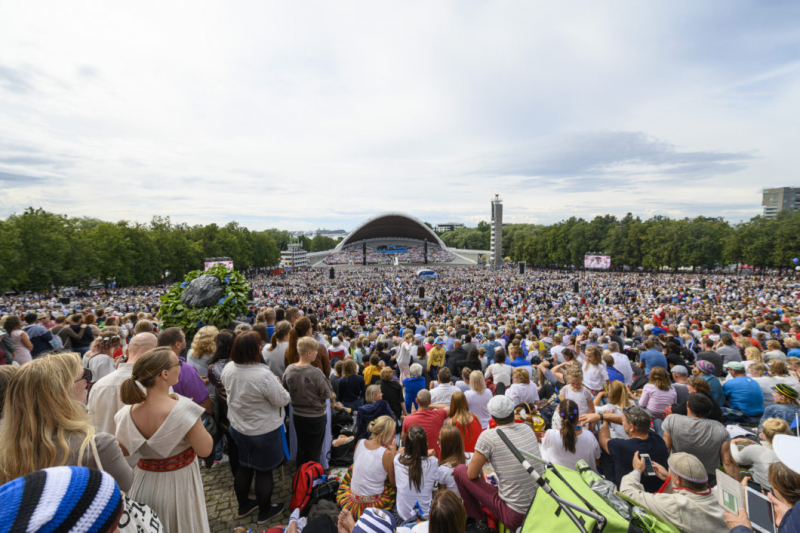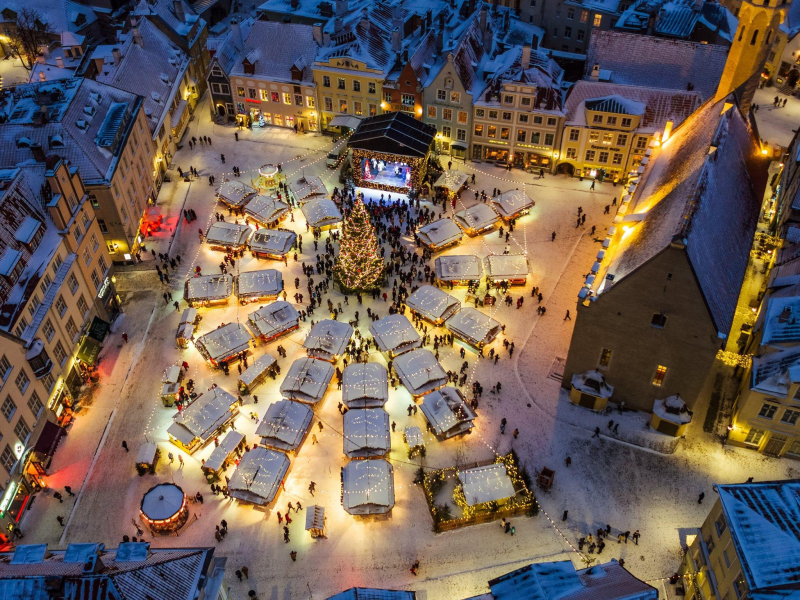Secular Celebrations
Traditional weddings are two-or three-day affairs with games and copious amounts of food and drink. Birthdays are always celebrated in grand style, as are christenings and confirmations. Christmas is still the most important holiday. Despite Soviet opposition, Christmas trees and traditional foods were decorated and served. New Year's Eve is included in the Christmas season. A sauna session before midnight cleanses the body and spirit for the new year.
The old folk calendar included many days that influenced farming decisions. On Shrove Tuesday, people still go sledding to make flax plants grow taller. On Saint John's Eve (23 June), nearly all Estonians go to the countryside to celebrate midsummer with large bonfires. Saint Martin's Day (10 November) and Saint Catherine's Day (25 November) are celebrated with children dressing up. A member of an Estonian folk music group performing near Tallinn. In costumes and going door to door to perform for treats.
State holidays with official governmental celebrations include Independence Day (24 February), Victory Day (23 June), and Independence Restoration Day (20 August).











